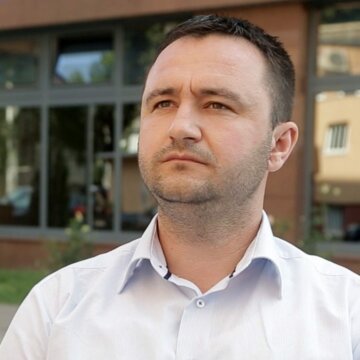- About
- Topics
- Picks
- Audio
- Story
- In-Depth
- Opinion
- News
- Donate
- Signup for our newsletterOur Editors' Best Picks.Send
Read, Debate: Engage.
| topic: | Freedom of Expression |
|---|---|
| located: | Bosnia and Herzegovina |
| editor: | Katarina Panić |
Emir Mešić from Bosnia and Herzegovina did have the courage to speak up. He exposed illegal behaviours from his employer, the Indirect Taxation Authority, ITA. Two days ago, he lost his job.
Working as a senior tax officer, he had found that half of the parking fees collected at customs terminals as public revenues have ended up in private companies’ accounts (some €150 million in total over the past ten years).
At first, he thought it must have been a mistake. He warned his superiors, but instead of internal control to be launched, Mešić got his first disciplinary proceeding, saying he “misled the interested public and caused damage to ITA’s reputation, who is the most important financial institution in Bosnia and Herzegovina.” The punishment was a replacement to a lower-ranking position with 20 per cent cut in his salary over one year.
In 2019 he reported the corruption to the state prosecution. The Agency for the Prevention of Corruption gave him an official status of whistleblower – protected corruption denouncer. It has been more than a year since he had filed the complaint, and nothing happened, neither did anyone contact him for details. That is why he decided to go to the media a few months ago. That proved to be an unforgivable mistake.
ITA launched another disciplinary procedure against Mešić. This time he was fired over severe alleged breach of duty, apparently over the unauthorised provision of information and data. As it is about the first instance decision, he has a right to appeal, and he is going to use every available legal remedy at his disposal to do so.
A year ago, the European Parliament adopted a Whistleblower Protection Directive that member states have to adopt by the end of 2021. Organisations and companies with more than 50 employees also have to apply the new rules so that no one could risk their reputation or job for reporting irregularities.
At the same time, the European Union funded a 3-year regional program titled 'Breaking the Silence: Enhancing the whistleblowing policies and culture in Western Balkans and Moldova'. The legal framework on whistleblower protection needs to be aligned with the EU in aspiring countries too. The final goal: enhance whistleblowing by changing the culture of silence.

